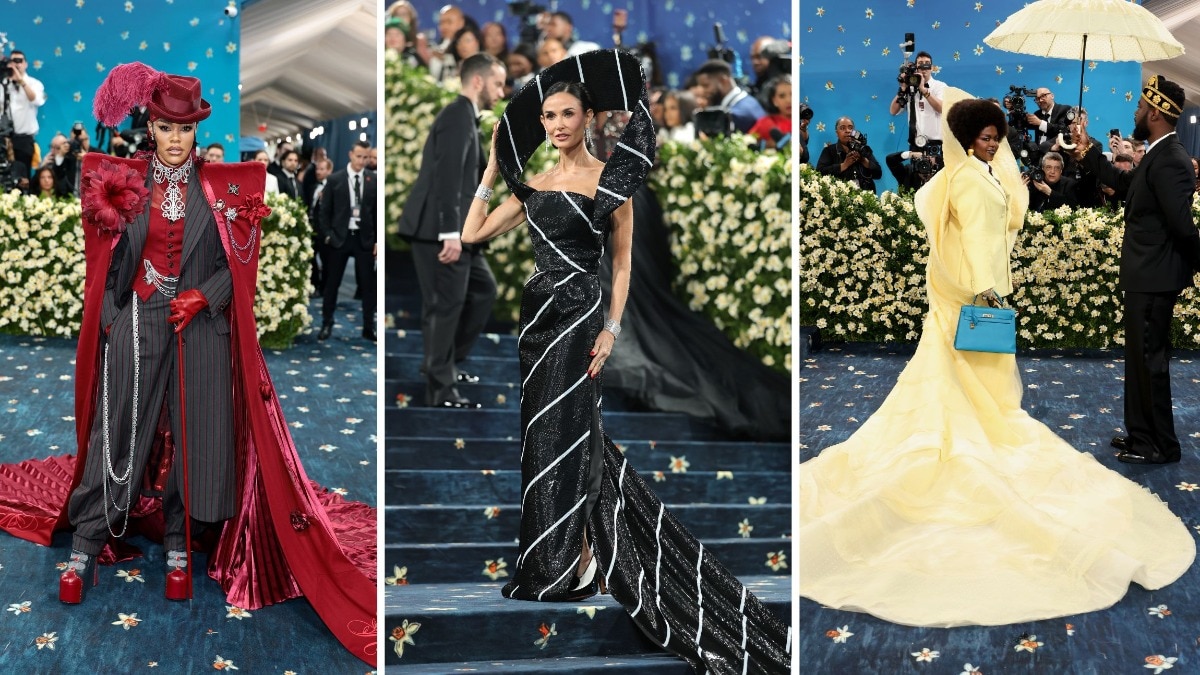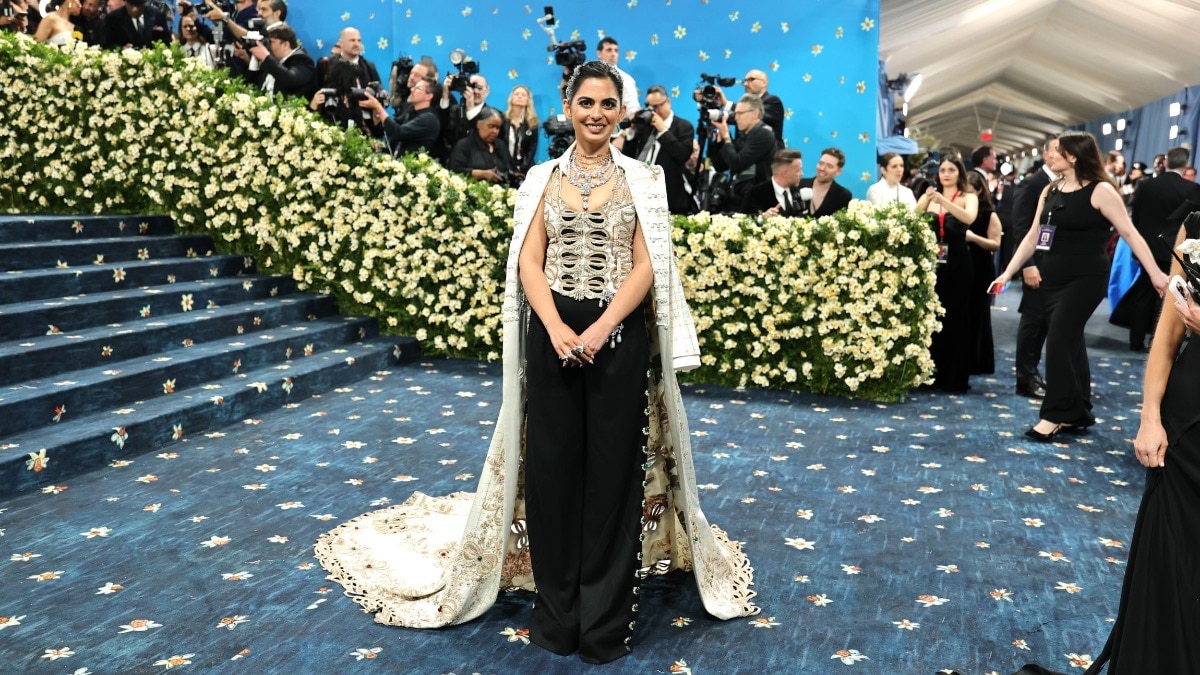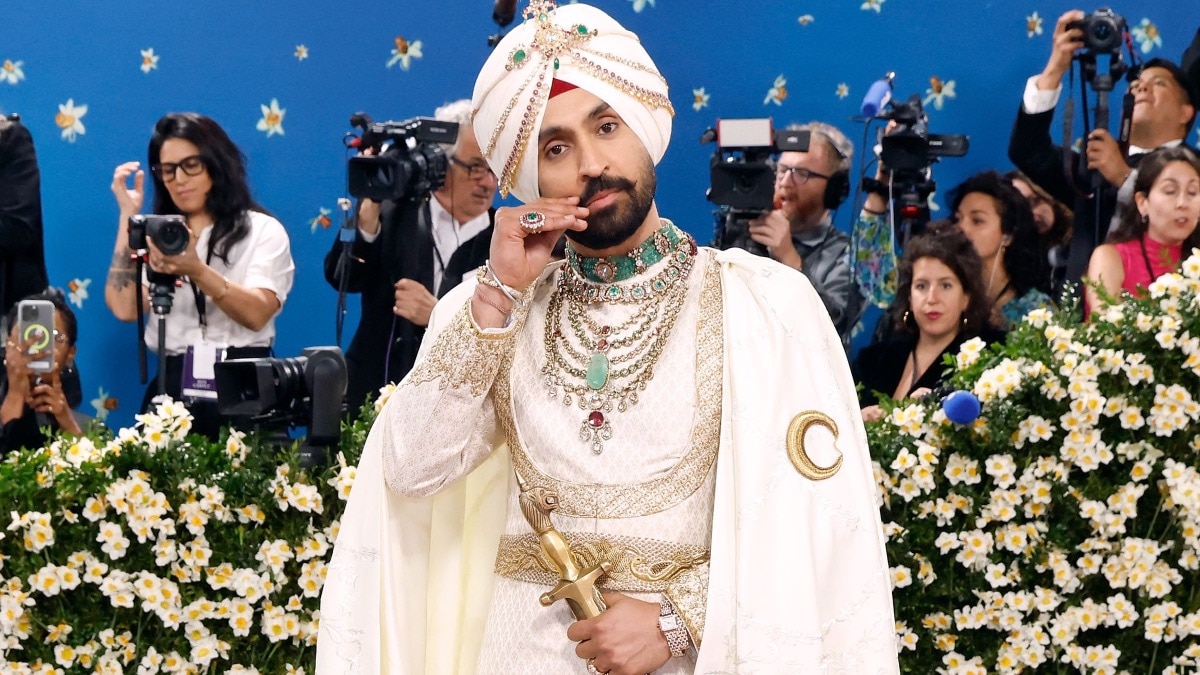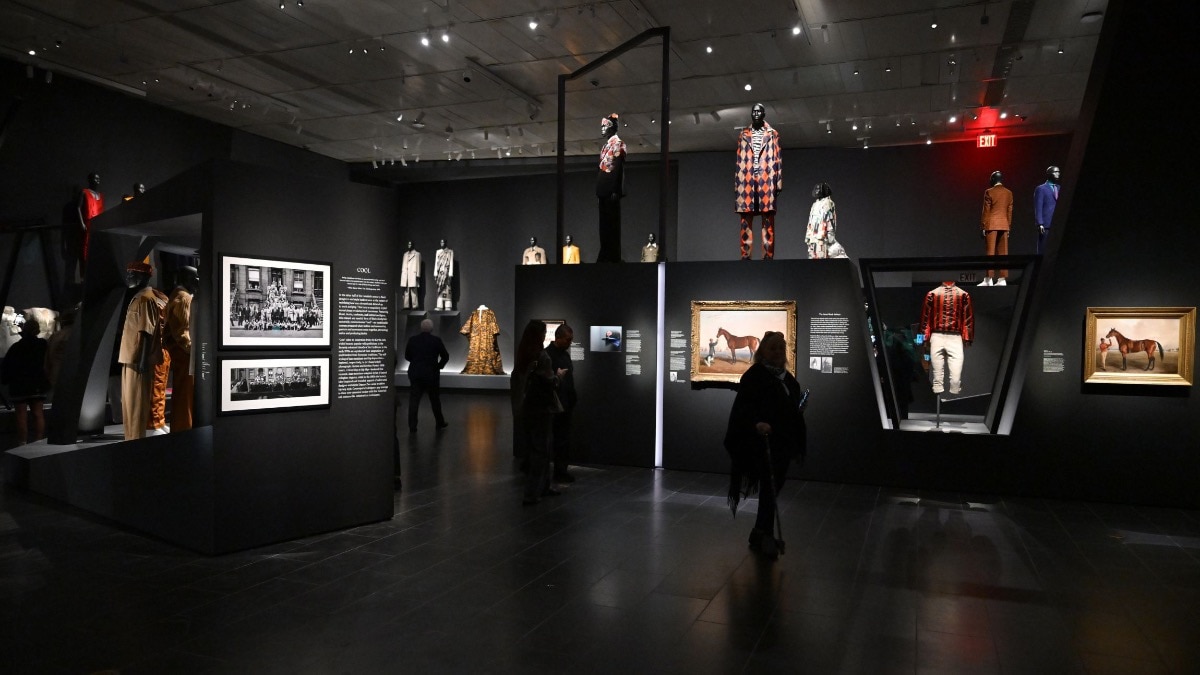How Diipa Büller-Khosla brought her love for fashion, photography, and humanity to a following of millions
The mama, influencer, and entrepreneur opened up about her entrepreneurial journey and her desire to leave a mark on the world.


Only so rarely do you come across people who have an impact on an entire community, a following of millions across the globe, and despite it all, or perhaps because of it, find joy in the simple things of life and have their head on their shoulders. The 16-year-old, wanting-to-create-an-impact-on-humanity Diipa would be proud of herself today. From studying law and wanting to become a human rights lawyer to being one of the first South Asian faces on social media, Khosla navigated her way to become exactly what she aspired to, making the most of a conflicted passion for fashion, writing, photography, and humanity. In her own words, she’s a risk-taker—unafraid to explore and experiment—but makes sure to find beauty in taking a step back, resting and taking time off. Our conversation was nothing short of reminders and lessons on life itself and exuded warmth, confidence and her infectious energy. Here’s what the global influencer has to say:

Harper’s Bazaar (HB): After boarding school, you went to Netherlands to study law. What was it that first inclined you towards law?
Diipa Khosla (DK): The funny thing is, I was first a pre-med student. I was studying medicine because well, mom is a doctor and it was kind of expected of me to be a doctor or an engineer. But then I did an internship at a hospital in India, and I realised it wasn't for me. There was too much sadness—people never come to a hospital with joy. And I remembered that the reason I wanted to be a doctor was to help people and create an impact on them. But I would come back home drained and tired. So, I realised maybe there's a different career that can help me help people. So, when I went back to university, I switched tracks and I took up law because we had an amazing international human rights law professor. And because you have the International Criminal Court (ICC) and The Hague in Amsterdam, a lot of big international human rights organisations were around. I thought maybe I can help people by fighting for human rights.
HB: After that you went to London for higher studies; what were your career goals before you entered the world of social media?
DK: After I started pursuing law, my goal was very clear—to be a human rights lawyer. It was something that really inspired me and I did a few internships with the ICC. I really enjoyed it. But I think, when I saw my friends working in the legal space, I realised that though it would definitely have impact on people, it would take time. It was more like a long-term endeavour. And I was a very eager bunny—I thought there must be something I can do to impact change now. And never in my wildest dreams had I thought that social media would fall in my path. So it was very clear what I wanted to do, but I do remember having questions like 'why can't I do it quicker or faster?'
HB: When did social media fall in your path?
DK: When I was pursuing my masters in the UK, I had just stepped into the world of social media, and towards the end of the course, I had to decide what I wanted to do. I told myself: Diipa, you cannot be a jack of many trades; you need to be the queen of one, so which one is it going to be? Either you're going to give it all you got and become a lawyer or you're going to make it big in this whole new world of social media, that nobody believes in yet. I had a few very tough conversations with myself. I realised at one point that I'm quite a risk taker in life. I‘m the ‘let’s jump in at the deep end and God will save you’ kind of person. So, I told my parents, “I'm sorry, but I don't think I am going to finish my masters. And I think I'm going to do this thing called social media. And I'm going to write blogs.” My parents had their jaw on the floor and they said, “What are you talking about? You're going to finish your master's and you're going to go work as a lawyer.” For them it was a tough pill to swallow. I remember telling them, “Give me one year, if at the end of the year, I can't make it, I'll go back, finish my master's and become a lawyer.” They agreed. I remember, during that year, I used to sit in a coffee shop from 7:00 a.m., get coffee for one pound, and send emails to every brand, every agency, and every PR firm possible, just earning my stripes.

HB: How was that year? How did you grow?
DK: It was definitely a year of learning. I learned and read, and heard and researched so much about this new world of media. I remember, nobody in India was really doing it well, but it was booming in the West. However, there was no diversity in the voice—none of the blogs were by desi people. I would actively write blog posts. There was this website called ‘Lookbook’ where you could put up your daily looks—it was as simple as writing about my outfits and putting up some posts about it. I remember the first time my website crashed due to heavy traffic, was when I put up a story about my acne. Because for a very long time, people online were always in awe of my skin and they would say things like ‘your skin is perfect, how do you have such amazing skin?’ Only I knew that I was editing every picture—I would edit all the acne on my face. And at some point, I realised, I don’t want everyone in the world to think that I look this perfect, when in reality I am struggling with bad skin. So I wrote this entire post on my acne with photos of my real skin, and shared my skincare routine, the medication I was using, and more. Until then I had never had so many viewers come on the website and I think that was my first viral content. That was the first time I realised the power of being more transparent and vulnerable to the world instead of always being perfect.
HB: Did being in this space change your understanding of beauty and confidence?
DK: Absolutely. I gained confidence really fast, because once you are in the space, you have to put your best foot forward, you have to perform, you have to show up. Not sharing something every single day and hiding from the world is not an option. So, even on days when you feel shitty, you show up. It also made me develop thicker skin. Haters just do not get to me anymore. What I was doing was something nobody had done before, and while there were people who believed in me, there were many who did not. I think for me, at least, it was a really good thing to grow up online, because if I wouldn't have, I probably would have been a less confident and a less tough person today. Moreover, the online family that I've built over the last few years has been nothing but gracious and kind. Every barrier that I broke, every time I stood up for us desi women, or created a ripple in the global influencer world, I think really impacted a lot of girls everywhere. It's definitely an honour to have been able to create even a single ripple in whatever that the industry has become today.
HB: Where do you draw your confidence from?
DK: I truly draw my confidence from trying things and stepping outside my comfort zone. If I get too comfortable, I get scared that there's no scope to grow anymore. When I first started this journey, I would actually be really nervous to meet with big brands. I remember the first time I met with Dior, I kept psyching myself: What if I’m not fashionable enough? What if they think I am stupid? But now I can literally go for a meeting with any big brand in the world straight out of a flight in a hoodie and chappals. I know who I am. I know what I bring to the table. And even today, there are things that I'm more confident about and things that I am still less confident about. But you just need to keep working on yourself, and try over and over again.

HB: How do you push yourself to be present on social media even on your low days?
DK: Ultimately, I want my content to be hopeful and inspirational, yet, transparent. I don't want it to become a negative space. I think my experience at Cannes is a perfect example of this. At that time, my daughter Dua picked up a bacterial infection from her day care, and then I caught it. My face began swelling up and to top it off, I had had a bike accident and the wound on my knee was infected. Basically, my body went into a shock. In that moment, I really wanted to hide from the world. I was thinking of cancelling my flight and going to my husband and just sleeping in. But in one of those very moments, I said ‘No, Cannes is too big an opportunity to miss and this message of showing up for something despite going through so much that you will illustrate, will ring true for all the girls in the world. They, too will have moments where they need to show up regardless of how they feel or look, and that moment was bigger than me.’ Of course, there are times when I haven't slept well the whole night because Dua kept me up, and on those days I take a step back from social media maybe, and just deal with myself. I find that balance really beautiful in my life—on the one hand, yes, I love to share the low moments and the high moments online, but at the same time, I also like to have a personal life. And today, at the age of 32, I think I have found that balance where I can categorise what is for social media, what is for my online family and what is just for my core family.

HB: What was your goal when you first started and how has it evolved?
DK: My goal has always been about making impact and using the voice or the platform I have—whether as a lawyer or an influencer. I want to be a role model for a lot women and girls growing up. When I first started influencing, I had two main goals, one was to really become one of the biggest kinds of desi influencers in the world, and the second was using my platform to work with NGOs and other organisations.
HB: You also started an NGO called Post for Change. What led you to that and what are the kinds of issues you hope to tackle?
DK: Post for Change is an NGO that my husband, Oleg, and I started, because we saw an opportunity to combine our experiences—he comes from the world of diplomacy and I have the knowledge of social media—for a good cause. When I mentioned to him that I wanted to use my platform for bringing about change, and I was sure a lot of influencers around the world want to, too, he told me that there are many UN organisations that want to use influencers to amplify their cause. So, Post for Change essentially became a middle ground for influencers and UN agencies. And we have since worked with UNICEF, UN Women, and created campaigns for them. For instance, if they want to raise awareness about Menstrual Hygiene Day, I will bring together about 20 to 30 influencers, and together, we amplify their message and raise funds. We also do ground-level work where, we conduct workshops, and personally talk to local women and young girls. We have big plans for Post for Change for 2023.

HB: You mentioned your husband. Was marriage and work something you had to navigate your way through?
DK: Definitely. I think people who say otherwise are just joking. But what I truly believe is, your late 20s to 30s, are the busiest phase of your entire life. Your career will be at its all-time peak, there will be so many opportunities, your marriage will be new and fresh, and you will have to keep up with friends and family. There is just so much happening. For Oleg and I, the last two years have by far been the busiest phase of our entire life. We're renovating our first house together, we had Dua, we have our NGO together, I have my influencing to do and manage my beauty brand Indewild, and on top of it, we have our marriage. It has been absolutely insane. How do I balance it? Honestly, I am still figuring it out. I think every day is a new day. And you just got to try to communicate well. Try to stay as positive as you can and see joy and gratitude in everything. I think that's the best way to keep going, because otherwise you're just going to get overwhelmed with how much you need to do every single day.
HB: What do you do on the days that you feel overwhelmed?
DK: I prioritise. It is the most practical tool. Every morning I list the three things I need to do on priority. It gives you a sense of calm. It’s like the Pareto Principle, (the principle states that for many outcomes, roughly 80 per cent of consequences come from 20 per cent of causes). On days when I get overwhelmed, I just tell myself, it is okay. You can do better tomorrow and it’s a very powerful thing to not let yourself feel guilty and not live life to the standards of capitalistic societies. There is also beauty in taking a step back because resting and not feeling guilty about it is going to make you take three steps forward. We’re still powerful women, we can still conquer the world, we can still do everything we want to but resting is not a bad thing.
HB: How has motherhood been for you? What have been the lessons and how has it helped you evolve in your work and as a person?
DK: I think motherhood has been the hardest, yet the most fulfilling thing I have ever embarked. Whether it was the pregnancy, the labour, giving birth, or the months after breastfeeding…when you become a mother, you age 10 years in just one year, because you learn so much, you evolve as a person, your emotions change, your neurotransmitters in the brain change, your hormones change. I have become wiser and more mature. And I think, the way I see the world now is a little bit different, because it's not just about taking from the world or me being number one. I feel that there's so much more focus on thinking about what a particular thing means to the next generation. Even from a sustainability point of view, if we, the current generation, don't do our best to fix climate change and other problems ailing our environment, who will? So, motherhood has really changed my outlook towards the world.

HB: Were those months of pregnancy challenging?
DK: Very. But it really depends on what you choose—I chose to have a normal birth, I chose to breastfeed, I chose to do a lot of things that have an insane impact on your body physically and mentally. You have to breastfeed every two to three hours and you literally get zero sleep. So, doing that and then choosing to also have a business that I scale during the same was crazy.
HB: Indewild, your beauty brand was also being developed around the same time? How did you do it?
DK: I truly feel that Indewild was born from my love for two things. One, to take the knowledge of Ayurveda, our culture, and the wealth of information not only to the world but also to young Indians, because the modern Indian has also forgotten it. And two, take the truly minimalistic approach to skincare, and living in general and showcasing the idea that you can always get away with less. That is the kind of brand I wanted to build: one serum, with like 10-11 ingredients instead of having a 15-step skincare routine. I didn’t want it to become your next big product purchase but instead become your last buy. I am not afraid to take feedback and reformulate to improve and innovate. I'm very grateful that Dua is a year and a half, Indewild is one-year-old and they're both thriving. I'm very proud of it for sure.

HB: What advice would you give to someone who is just beginning their career as content creators or influencers?
DK: Just get started and try everything. I think people keep waiting for the perfect idea, the perfect angle, and everything perfect. Don’t, just start. I have pivoted and evolved, changed my content and my strategy. Social media platforms have also evolved, so you might as well try things and see what sticks. Try to put out something that you’re passionate about or something that's actually organic. The great part of social media today is that you can be an influencer, in pretty much every space, as long as you can give value to people. So, if you have knowledge and are passionate about something, just get started, and everything else will figure itself out. That's the good news. The slightly bad news is that there are many content creators out there, so, it is a bit difficult to stand out. I would say, find a niche because within that niche, because if you're just going to be a small fish in a big pond, you could have the best content and try really hard, but it's going to be difficult for you to stand out.

HB: Finally, what keeps you going?
DK: My family is my love for life. I think I really am a lover of life and humanity. Every single day I wake up, I'm just so grateful to be alive, to be able to do things, to live in this amazing life, where opportunities and friends and biryani exist together! I feel like being that source of joy and happiness in every room that you enter is something that really really keeps me going—meeting new people meeting smart people, meeting young people, meeting people who want to make a change. There's just so much joy to experience in this world. And as simple as it sounds, I think those are the things that really keep me going every day.
feature image credits: diipakhosla/Instagram










